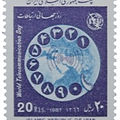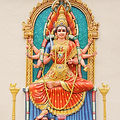The Most Influential
People in History

MATHEMATICS

‘The true method of foreseeing the future of mathematics is to study its history and its actual state.’
Henri Poincaré - Science and Method, 1908.
Navigating the Mathematics Section
This initial page is the gateway to all the information for the mathematics section. As you scroll down this page it includes:
1. First, a short introduction to the history of mathematics with an emphasis on the most influential mathematicians. At the end of the short introduction clicking on the orange"Read More" panel leads to -
2. A more detailed introduction that discusses how the mathematicians were chosen followed by a conclusion for the section. Immediately following the conclusion is a discussion of seven millennium problems that remain unsolved and which each offers a $1 million prize for a solution.
3. A table of the 46 most influential mathematicians that leads to detailed biographies accessed by clicking on the person's name in the table. The table can be resorted by clicking on the column headings to show the mathematicians grouped by civilization, ranked by influence, and chronologically.
4. All the mathematicians listed alphabetically with thumbnail size stamp images for each person. Clicking on the stamp image or the name of the mathematician will take you to the page with a detailed biography.
5. At the end of the alphabetical list are four civilization sections that focus on:
* Indians and Writing Systems
* Arabs/Islam
* Chinese (at bottom of this page must click on the right arrow for page 2)
* Japanese (at bottom of this page must click on the right arrow for page 2)
Short Introduction
This section focuses on the 46 people who were most influential in shaping the history of mathematics. A basic way to organize the 46 people selected and to understand how mathematics developed is to understand that the Greeks, notably Archimedes and Euclid, were the first group of people to confirm mathematical principles by proof. Earlier, the civilizations of Ancient Egypt (3,500–650 B.C.E.), China (1,650–650 B.C.E.) and Babylonia (1,850 B.C.E.–539 B.C.E.) had the most advanced mathematics of all the cultures before the Greeks, but nothing was confirmed by proof.(1)
The Greeks wanted to understand the physical world and believed mathematics was a critical element because mathematical laws are the essence of nature’s design. They searched for the meaning of natural phenomena in numerical terms. Their system of organization was deductive as in deductive logic. Euclid, especially, began with basic principles or axioms (Euclid used the terms “postulates” and “common notions”) and built theorems from these. A theorem is a general proposition not self-evident but proved by a chain of reasoning or a truth established by means of accepted truths (axioms or postulates). The Greeks were in effect the creators of “mathematics” as the term is commonly understood because they created general mathematical statements that were confirmed by proof.(2) By extension then, the Greeks were the founders of geometry because of the use of systematic organization and proofs of their claims in this branch of mathematics.
The next stage was a bridge provided by the Indians and the Arabs that led to the discoveries of the Europeans starting in the 1500s. Without the translations of Greek mathematical treatises, including Euclid’s Elements and works of Archimedes and Apollonius of Perga, the Europeans could not have accomplished what they did from the 1500s to the 1800s. Also, the Arabs made some advancements from the Greeks that were important for the European mathematicians.
While some of these individuals are known only as mathematicians, such as Euclid of Alexandria, Seki Kowa, and Bernhard Riemann, most made significant contributions in the sciences and some in seemingly unrelated fields such as philosophy and religion. For example, Thales of Miletus is considered the founder of Greek philosophy and Rene Descartes the founder of modern philosophy. Though the label for these individuals is “mathematician,” the biographies that follow offer a fascinating account of how many areas of the physical sciences evolved. Related to the school curriculum, the life of Archimedes brings out early work in engineering, mechanics and hydrostatics. Many key concepts in physics, astronomy, astrophysics, and optics come to life as you read about Ptolemy of Alexandria, Nicolaus Copernicus, Galileo Galilei, Johannes Kepler, and Isaac Newton.
If this description sounds overwhelming, do not worry; take it slowly and the ideas will come together. They did for me, but only after careful reflection and persistence. Overall, this survey is a refreshing journey of how a subject some consider dull comes to life. Some of history’s greatest thinkers struggled to explain the properties and relationships of common shapes, and discovered the reasons why the sun, moon and planets move as they do and in general derived laws that could describe and predict all types of movement exactly.
Mathematics is a powerful tool on a road to becoming any type of scientist, engineer, doctor, or mathematician because mathematics is the critical gateway to all the sciences. You may want to study the content carefully and reread certain passages over and over for the concepts to be understood. One intent of this section is for the biographical information to serve as a welcome alternative to the endless problem sets assigned nightly in math. To drive home the points, take the time to look up at the stars and the shifting phases of the moon as the nights pass and begin a journal of your observations. Another idea is to start recording where the sun appears at the same time each day over the course of a month or year. The heavens, the sky above us, were the first laboratory of our ancestors in their search for the physical laws we accept as basic knowledge today. Eventually, if not already, the wondrous power of mathematics and its application to the real world will ignite a fire of curiosity in you and reveal the richness of our physical world.
Overall, there are ten top mathematicians, selected to help you remember how the field of mathematics developed and as a way of prioritizing your study of the most influential mathematicians in history. Listed in chronological order:
-
Aristotle–Systematically organized Greek or Aristotleian Logic.
-
Euclid of Alexandria–Systematically organized geometry.
-
Archimedes of Syracuse–Geometry; father of mathematical physics.
-
Brahmagupta–Nine Hindu number symbols and a zero symbol plus the place-value concept using base 10 (this became the most widely used system in the world for rendering numbers); algebra.
-
Muhammad ibn Musa al-Khwarizmi–Father of algebra because he systematically organized it. The Arabs provided a critical bridge by preserving and spreading the knowledge of Greek mathematics to the Europeans.
-
Galileo Galilei–First to use mathematics to describe physical motion.
-
Isaac Newton–Culminating figure in math and science up to about 1700 by discovering the three laws of motion and the law of universal gravitation. Independently created the calculus.
-
Seki Kowa–Father of Japanese mathematics.
-
Carl Friedrich Gauss–One of the top three mathematicians in history. Great work in algebra, calculus, number theory, probability, statistics, and non-Euclidean geometry.
10. Emmy Noether–Greatest female mathematician in history.
Footnotes:
(1) Carl B. Boyer, A History of Mathematics, 2nd Edition (New York, 1991), p. 24.
(2) Encyclopaedia Britannica, Macropaedia, Volume 23, 1993, 15th Edition, p. 565.
Ranking by Influence, Chronologically, and by Civilization
(Click on the column headings to re-sort the list.)
Persian Mathematician, Philosopher, Historian, Astronomer, and Poet
Mathematics Ranking 41st of 46
Greek Philosopher and Scientist
Mathematics Ranking 19th of 46
Overall Ranking 10th of 500
Indian Astronomers and Mathematicians
Mathematics Ranking 27th and 28th of 46
Swiss Family of Mathematicians and Scientists
Mathematics Ranking 24th of 46
Polish Astronomer and Mathematician
Mathematics Ranking 13th of 46
Overall Ranking 36th out of 500
French Mathematician, Scientist, and Philosopher
Mathematics Ranking 16th of 46
Greek Mathematician
Mathematics Ranking 1st of 46
Overall Ranking 12th of 500
French Mathematician and Egyptologist
Mathematics Ranking 33rd of 46
Italian Mathematician and Merchant
Mathematics Ranking 18th of 46
Italian Astronomer, Physicist, and Mathematician
Mathematics Ranking 9th of 46
Overall Ranking 4th out of 500
German Mathematician and Philosopher
Mathematics Ranking 14th of 46
English Mathematician and Scientist
Mathematics Ranking 2nd of 46
Overall Ranking 3rd of 500
French mathematician, Physicist, and Religious Philosopher
Mathematics Ranking 34th of 46
French Mathematician and Theoretical Astronomer
Mathematics Ranking 22nd of 46
Astronomer, Geographer, and Mathematician
Mathematics Ranking 8th of 46
Greek Philosopher and Mathematician
Mathematics Ranking 11th of 46
British Philosopher, Mathematician, and Social Reformer
Mathematics Ranking 42nd of 46
Greek Mathematician, Astronomer, and Philosopher
Mathematics Ranking 10th of 46
Hungarian-Born American Mathematician and Computer Pioneer
Mathematics Ranking 29th of 46
Chinese Mathematician
Mathematics Ranking 26th of 46
◄
1 / 1
►















































